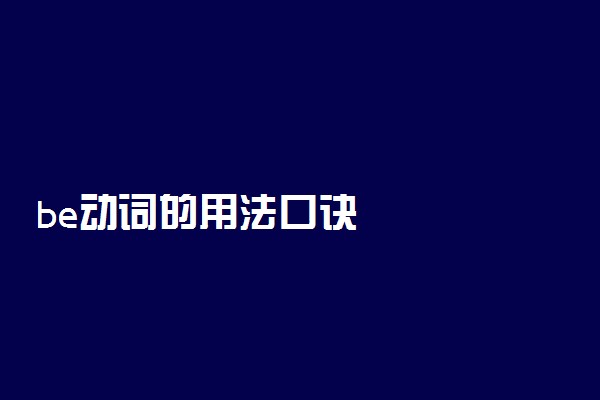be动词的用法口诀:我(I)用am,你(you)用are,is跟着她(she)他(he)它(it)。其余单数用is,复数都用are。

be动词用法口诀
be动词真伟大,生出is, am, are。
表否定很简单,not加在be后边,
若要变为疑问句,be应移到主语前。
还有一点要注意,句末问号别忘记。
be动词用法
一、系动词be
be为连系动词,中心词义是"是",句型为"主+系+表"结构。be的形式常用am, is, are(现在式);was, were(过去式);will/can/may/must be(助动词/情态动词+原形);have/has/had been(助动词+过去分词)等。
例句:
To help animals is helping people.
二、助动词be
助动词be,无词义,辅助主要动词一起在句中作谓语动词。用法如下:
1、be+doing:构成进行时态,有现在和过去两种进行时态。
例句:
The girls is reading and copying the new words now.
2、be+done:构成被动语态(主语是动作的承受者,done必须是及物动词)。
例句:
Tea is grown in my hometown.
3、be+going to do,表示"打算或将要做某事",be有现在和过去两种形式。
例句:
We are going to plant trees in the park.
4、be+to do,表示"按计划安排将要做某事"。
例句:
The new shop is not to be opened till next Monday.
三、there be句型
there be句式为:there be+主语部分+状语部分,表示"某处存在某物",be常用现在时,过去时和将来时等。
例句:
There are about 80 pyramids in Egypt.
四、实义动词be
可以将be视为实义动词,因为它具有实际的词义,如"成为;做;发生;举行;逗留;到达"等。
例句:
His daughter wants to be a doctor for animals in her twenties.
小编推荐
7.平方根口诀表